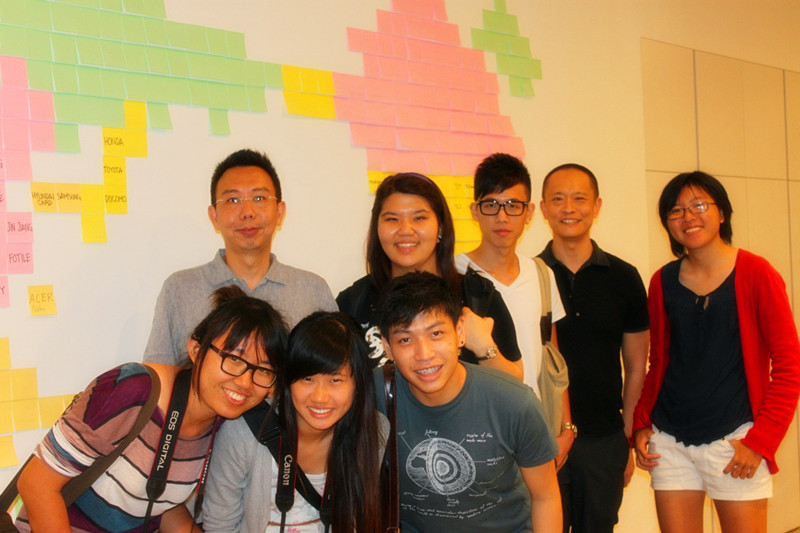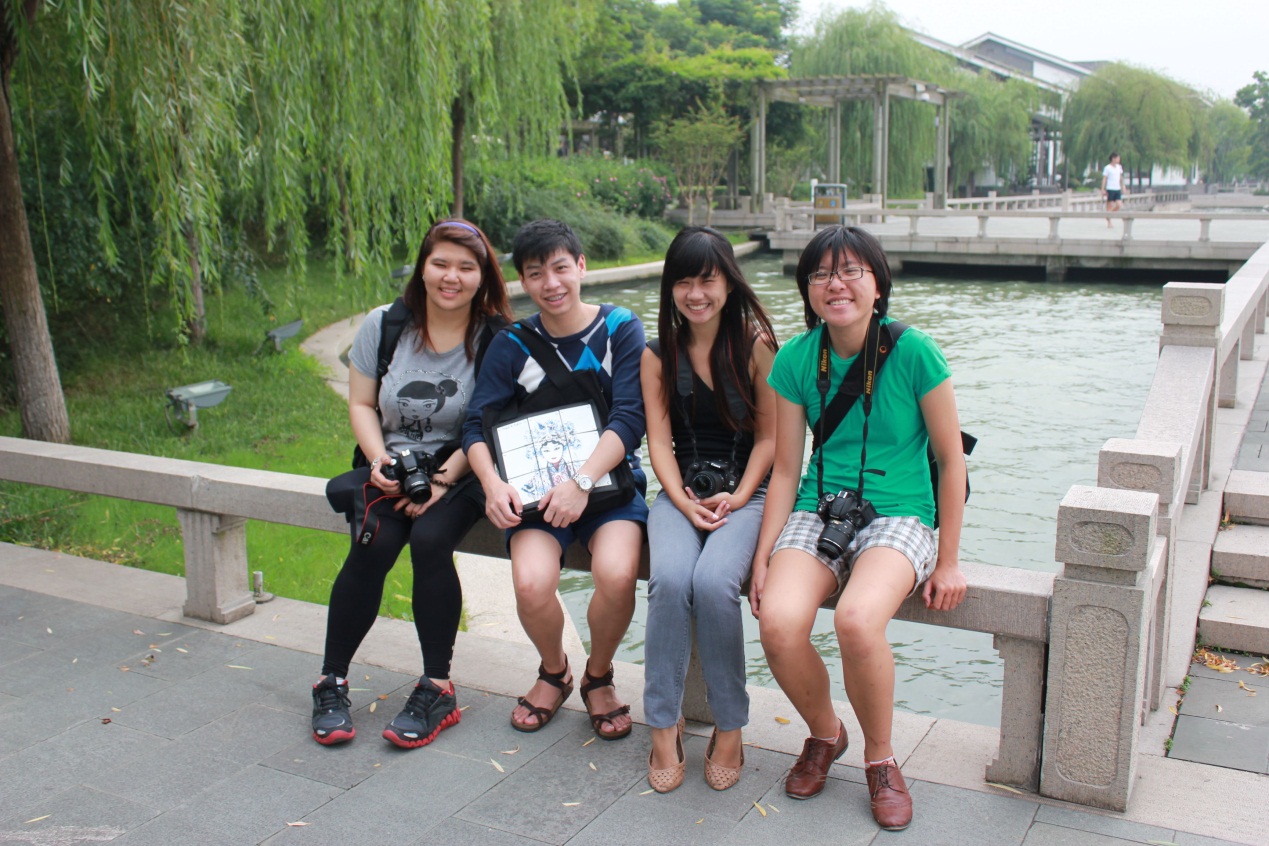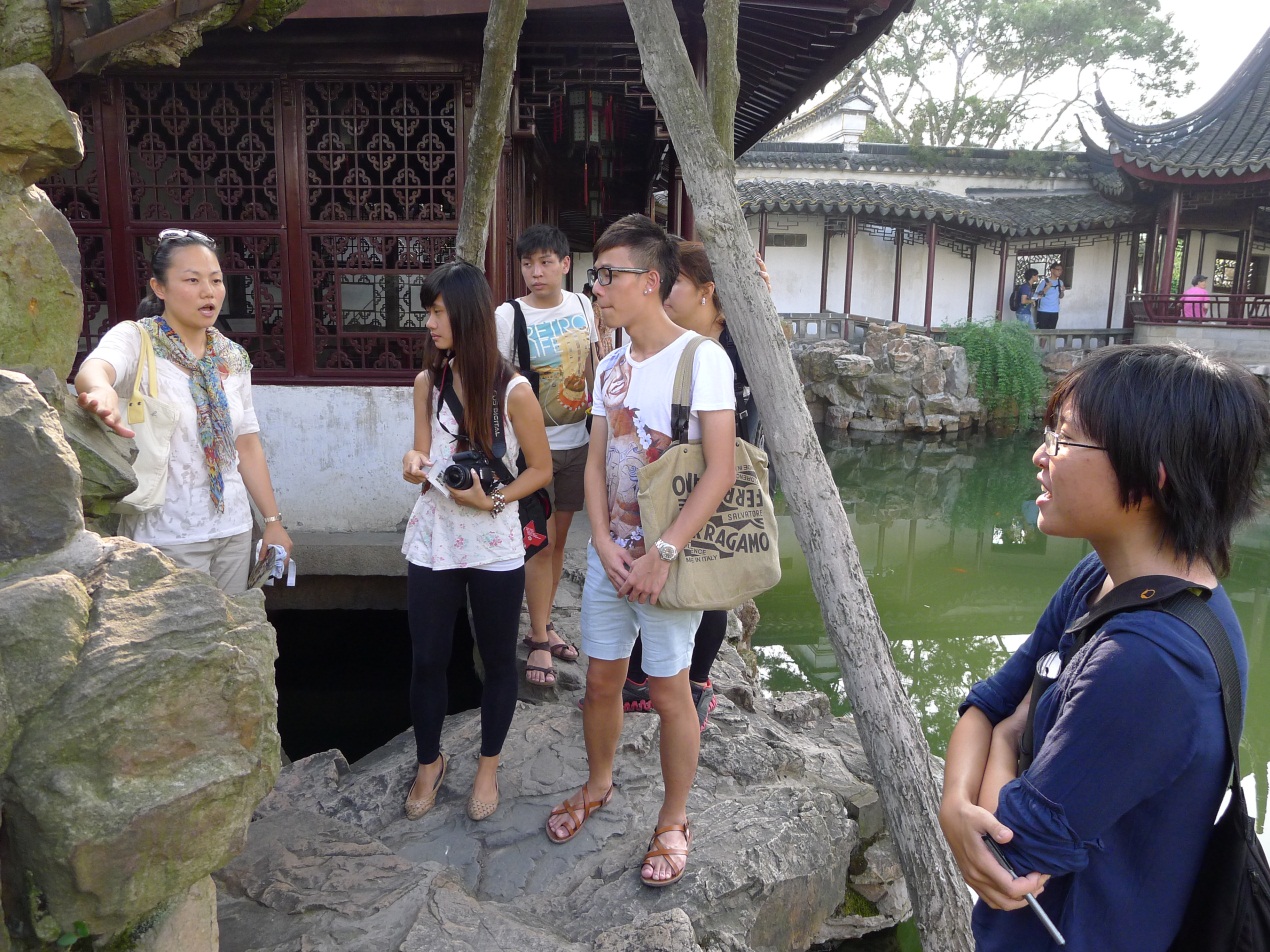2012 Architecture Trip
Six students led by a faculty member from the Department of Architecture, NUS participated in an architecture design exposure programme in July 2012 around Suzhou and its surrounding regions. Their visits and cultural activities in Shanghai and SIP (Suzhou Industrial Park) were facilitated by NUSRI.
This overseas enrichment programme for the students consists of conducting research in Shanghai, and designing an integration that can be implemented in SIP. While architecture design was certainly the main focus of the trip, but what really impressed the students in these cities was how innovative the people interacted with spaces. Architecture no longer has to be confined in a designated physical space. Instead, the people dwelling in the space become their own architects and start to design their own micro scale environment, and to redefine the function of many most unexpected areas. For example, an empty clearing at the river can be used as an outdoor living room for household staying along the riverbed, and a bridge under the canopy of trees can easily become the best spot for elderly playing chess. The students enjoyed very much discovering these kinds of little surprises while visiting Zhujiajiao in Shanghai and Tongli in Suzhou.
Another important lesson for the students during this trip is that landscape is also a very important element in architecture. Suzhou, also known as Venice in the East, embraces with scenic landscape, along the river as well as in the various famous traditional gardens. This is indeed proven so after they have visited a few of gradens. They did not realize that every element of the garden was there for a reason and had a certain symbolic meaning to it. Prior to the trip, students often felt that Chinese gardens were all similar somewhat and visiting one was enough to understand them all. However, after understanding there are hidden meanings to each implementation of a garden, they started to realize each garden had its own personality and is a reflection of the personality of its dwellers and people in the past. They can now feel a garden, beyond the visual aspects, and to imagine how people in the past interacted with the space.
One of the students Zhang Yiming has the following thoughts after the programme:
“Architecture is not just about buildings, rooms or spatial experience which we always emphasize in school. We have to see beyond them and understand that it is in fact a network of ecologies that invoke emotions within us. This, to me is the most valuable lesson that I have learnt during this trip. ”

This overseas enrichment programme for the students consists of conducting research in Shanghai, and designing an integration that can be implemented in SIP. While architecture design was certainly the main focus of the trip, but what really impressed the students in these cities was how innovative the people interacted with spaces. Architecture no longer has to be confined in a designated physical space. Instead, the people dwelling in the space become their own architects and start to design their own micro scale environment, and to redefine the function of many most unexpected areas. For example, an empty clearing at the river can be used as an outdoor living room for household staying along the riverbed, and a bridge under the canopy of trees can easily become the best spot for elderly playing chess. The students enjoyed very much discovering these kinds of little surprises while visiting Zhujiajiao in Shanghai and Tongli in Suzhou.

Another important lesson for the students during this trip is that landscape is also a very important element in architecture. Suzhou, also known as Venice in the East, embraces with scenic landscape, along the river as well as in the various famous traditional gardens. This is indeed proven so after they have visited a few of gradens. They did not realize that every element of the garden was there for a reason and had a certain symbolic meaning to it. Prior to the trip, students often felt that Chinese gardens were all similar somewhat and visiting one was enough to understand them all. However, after understanding there are hidden meanings to each implementation of a garden, they started to realize each garden had its own personality and is a reflection of the personality of its dwellers and people in the past. They can now feel a garden, beyond the visual aspects, and to imagine how people in the past interacted with the space.

One of the students Zhang Yiming has the following thoughts after the programme:
“Architecture is not just about buildings, rooms or spatial experience which we always emphasize in school. We have to see beyond them and understand that it is in fact a network of ecologies that invoke emotions within us. This, to me is the most valuable lesson that I have learnt during this trip. ”




